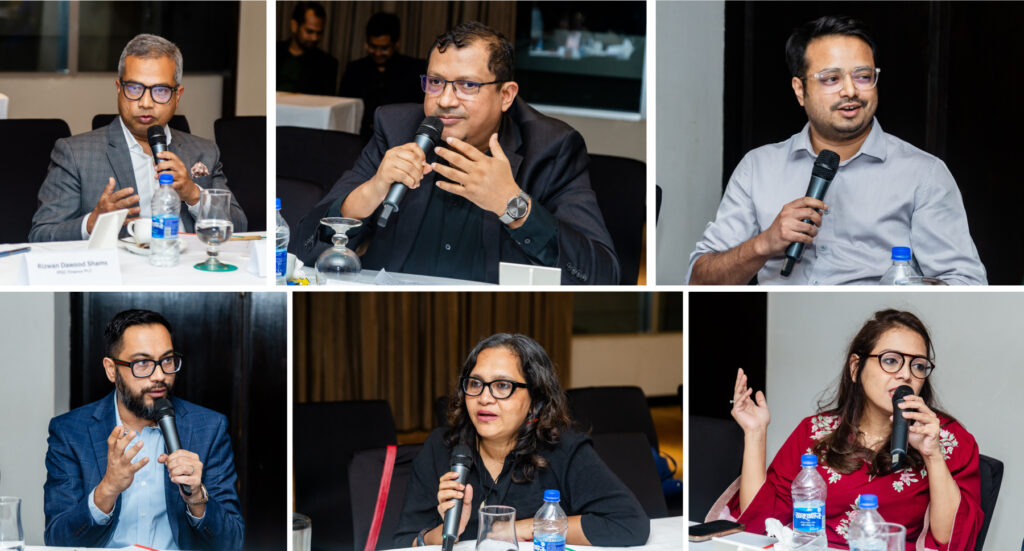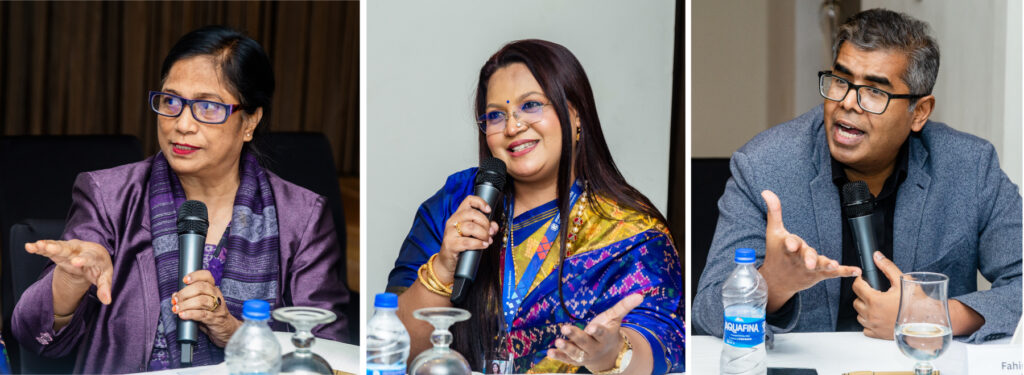
Despite their talent and determination, women entrepreneurs in Bangladesh face an uphill battle. This includes limited access to finance, restricted mobility due to societal norms, inadequate business support services, and a lack of representation in formal markets, thereby leaving them uncompetitive in terms of price, quality, and scalability. Even if they are able to overcome these challenges, they often remain invisible to major corporations and find it difficult to compete with established suppliers. Corporate procurement tends to favor familiar, large-scale suppliers, leaving women-led small and medium enterprises (WSMEs) sidelined. This lack of visibility and access means that even the most capable women entrepreneurs struggle to break into corporate value chains and grow their businesses sustainably.
On May 22, 2025, Innovision Consulting took a decisive step to change this narrative by hosting an exclusive CXO Dinner at Le Méridien Dhaka. The event gathered senior leaders from finance, manufacturing, technology, and development sectors to address the persistent challenges faced by WSMEs and chart a practical way forward.

Md. Rubaiyath Sarwar, Managing Director of Innovision, opened the evening by framing the challenge: while some women entrepreneurs have proven competitive in quality and pricing after targeted training and support, many corporates simply don’t know about them. “Visibility is the biggest barrier,” he said. “Corporates want reliable, cost-effective suppliers, but how can women entrepreneurs compete if they aren’t even on the radar?”
Hosna Ferdous Sumi, Senior Private Sector Specialist at the World Bank, confirmed this gap with a stark statistic: women-led SMEs represent less than 1% of corporate procurement in Bangladesh. This alarming figure sparked a frank and solution-oriented discussion among the CXOs.
Zahida Fizza Kabir, CEO of Sajida Foundation, urged the audience to look beyond gender-based preferences and recognize the real business value WSMEs bring — innovation, agility, and untapped market potential. Other leaders, including Anis A. Khan of AAZ and Partners, emphasized the need for policy reforms and legal frameworks that encourage companies to embed supplier diversity in their ESG commitments.

The question of women entrepreneurs’ ability to meet large-scale corporate demand was raised by Shahreen Shabnam, Head of HR and Admin of Kallol Group of Companies. Financial inclusion also emerged as a key theme in this regard. Rizwan Dawood Shams, MD & CEO of IPDC Finance, pointed out that without improved access to credit, women entrepreneurs cannot scale to meet corporate demands. Sabbir Ahmed of VISA Bangladesh saw digital payments as a powerful tool to increase transparency, build credit histories, and enhance WSMEs’ financial visibility.

WSME leaders like Kohinoor Yeasmin (Tarango) and Taslima Miji (Leatherina) spoke candidly about the need for fair, predictable contracts and alignment of corporate procurement policies with inclusive sourcing goals. Meanwhile, corporate representatives from Ifad Multi Products and PRAN RFL Group underscored internal reforms to streamline onboarding and ensure timely payments. Innovision’s project implementation team leaders, including Mohammad Nazmul Ahsan, Portfolio Director, and Fatema Tuz Johora, Portfolio Manager of the Inclusive Financial Solutions Portfolio, were also present. Together, they are leading the implementation of this initiative across Bangladesh.
Innovision showcased the digital tools developed under the We-Fi Project, such as the SME Foundation Suppliers Platform, Corporate Connect website, and SMEF mobile app, which help women entrepreneurs increase their visibility and connect with corporate buyers. The CXOs were impressed by these innovations and committed to leveraging these platforms.

The evening ended on a hopeful note: the participants pledged to directly connect trained, competitive women entrepreneurs with corporate procurement teams, bridging the visibility gap and moving towards inclusive, value-driven procurement. By bridging the visibility gap, this initiative can unlock the true potential of women entrepreneurs, transforming them into strategic allies who shape a more resilient, inclusive economy.